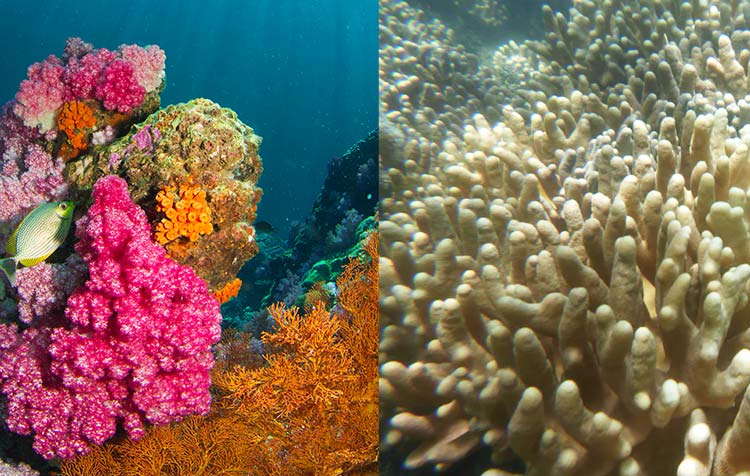Want to know more about coral mortality and coral bleaching? Then you've come to the right place! When from the biggest Environmental problems of our time the alarming state of the world's coral reefs must also be discussed. Not least because corals are by far the most species-rich and productive marine formations, serve as breakwaters off the coast and also provide millions of people with a vital income through fishing and tourism.
In this article I want to give you everything you need to know about the global coral die-off. From the definition, to statistics, causes and consequences, to everyone's options to do something about it. Let's go!
In advance you can find here already a short Overview about the contribution:
Coral dieback and coral bleaching - What is it?
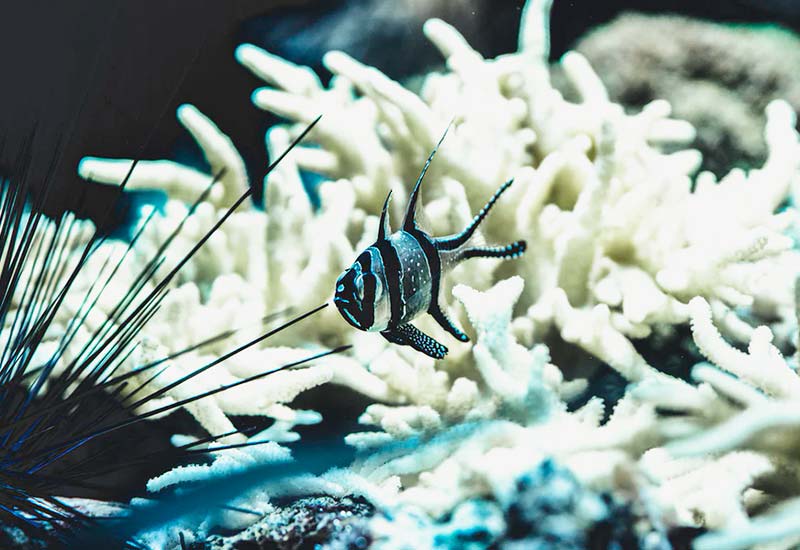
Since the terms "coral dieback" and "coral bleaching" are somewhat different, I would like to give you the exact definitions here. This much in advance: Coral bleaching is a symptom of the process of coral death, so to speak.
Coral mortality
Under coral mortality is generally the global, large-scale dieback of coral reefs which has been observed and researched worldwide since the mid-1980s.₁
Coral bleaching
Coral bleaching (also known as "coral bleaching") refers to the phenomenon of the Bleaching of stony coral caneswhich is mainly due to an increased water temperature. The coral thereby repels colonizing algae (zooxanthellae) and loses its colorfulness. Finally, only the white calcareous skeleton of the dead coral remains.₂
Statistics around the corals and bleaching
To monitor the condition of the corals and the Extent of the ecological problem a little more tangible, I have compiled some facts here:
- Corals cover less than 1 percent of the ocean floor, but harbor 25 percent of all marine life.₃
- About one-third of global coral systems are in a state where regeneration is no longer expected.₄
- 40 percent are at high risk.₅
- Only about 30 percent of the corals are still in relatively good condition.₆
What are the causes of coral mortality and coral bleaching?
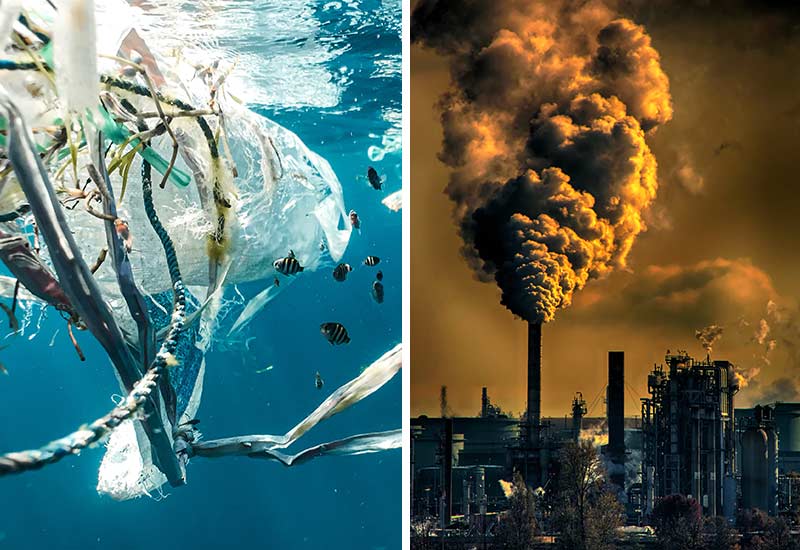
Now we already have a relatively clear picture of the ecological problem. But why are the corals actually dying? What are the exact human or natural causes? In the following I would like to introduce you to the main reasons for coral death and bleached coral stalks:
Increased water temperatures due to climate change
Most corals find the optimal conditions at a water temperature of 25°Celsius.₇ The water temperature, which is influenced by the climate change However, the increase in water temperatures - and the longer heat storage in the water - is causing problems for the reefs. The rise in temperature is actually the Main reason of coral mortality.
Sunscreen
UV filters and chemical ingredients from sunscreens and other Cosmetic products (such as soaps or washing lotions) are poison for the colorful underwater world.
Acidification of the oceans
The ocean absorbs about one third of anthropogenic CO2 emissions. The resulting Carbonic acid damages the corals' calcium shells.₈ By the way, a slightly alkaline pH of about 8 is ideal for coral growth.
El Niño phenomena
This is understood to mean unusual Water currents and a natural cycle of warming and cooling of the ocean. The warmer water temperatures in certain periods have eventually resulted in coral bleaching.
UV rays
Also the intense UV radiation can Partial cause of the death of coral reefs.
Infections
In a sick environment, the corals also get sick - and can perish from bacterial and fungal infections, for example.
Mass tourism
Corals as souvenirs, cruises, countless hotel complexes near the coast, snorkeling and diving trips with dozens of participants, direct touching of the corals, deliberate fish feeding to attract the animals - these and Many more features of the Mass tourism harm the corals.
Plastic waste
Whether it's ghost nets, plastic bottles or disposable straws, the non-biodegradable, human waste and the Plastic waste in the environment remain eternal and are partly responsible for coral mortality.
Wastewater, fertilizer and oil pollution
We humans are changing the quality of the water in the oceans and thus also the living conditions of corals. There are even lifeless "Dead Zones" (English: dead zones) in which the oxygen content in the water is simply too low. In addition, sewage and fertilizers promote the proliferation of crown-of-thorns starfish, which feed on stony corals.₉
Fishing methods
Not only trawling can endanger corals. In Asia and Africa, for example, fishing is done with the neurotoxin cyanide or even with explosives. In the so-called Poison fishing and dynamite fishing the fish are stunned and caught or collected dead. These "catching methods naturally also destroy entire coral reefs.
Can you think of any other causes? Then feel free to write me a comment with a short explanation.
What are the consequences of coral mortality?
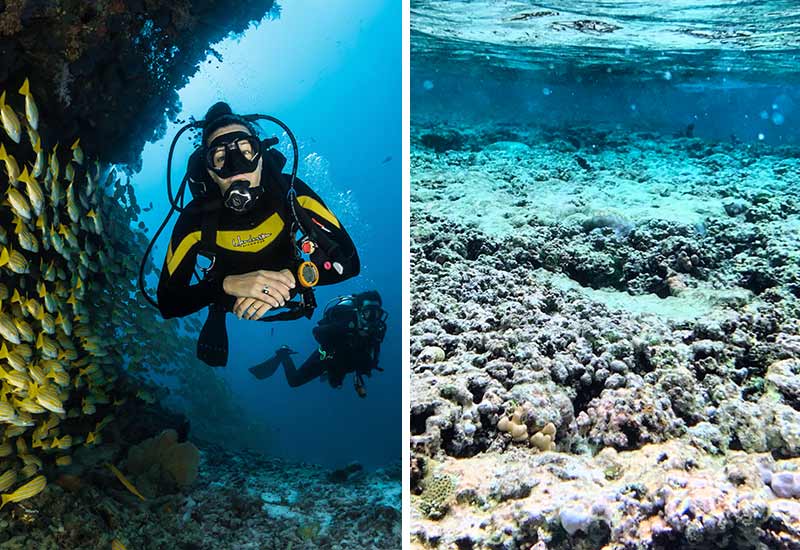
As mentioned at the beginning, corals fulfill important functions. Accordingly, their disappearance also affects nature and not least us humans. I would like to briefly explain the main consequences of coral mortality here.
Ecological consequences
Coral reefs are not called "rainforests of the seas" for nothing. They are extremely sensitive, species-rich ecosystemswhich provide shelter and food for countless marine animals. In addition, their limestone structures protect coastal areas from erosion by stormy waves, and at the same time they are still a barrier to rising sea levels.
So coral mortality is accelerating in the most massive way the global species extinction and holds life-threatening dangers for people living in coastal regions.
Social and economic consequences
Millions of people live from fishing - and feed themselves predominantly on marine animals. So it is only logical that the coral and species extinction will cause social problems such as Poverty and World hunger reinforced. In addition, countless people dependent on the purchasing power of foreign tourists are. But if the corals die, life in the coastal regions also dies in many places, threatening the existence of many people.
What to do about coral mortality?
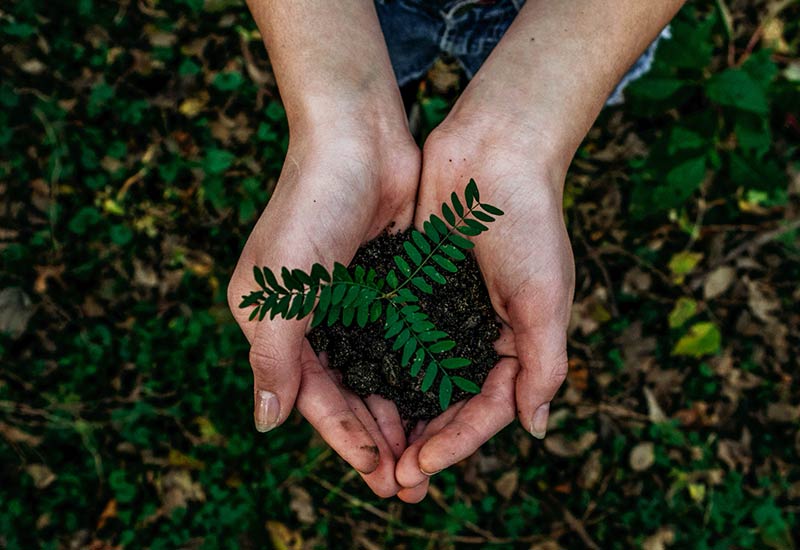
Anyone who has ever been diving or snorkeling in one of the many, colorful underwater worlds will feel a very special motivation to do something for their preservation. Bleached corals are usually - and fortunately - not dead yet, but it definitely needs changed conditions, to bring the old colorfulness back to life. By initiating a change in our everyday life and live more sustainablyFinally, we can also help the coral canes. For example, use the following tips.
Sustainable and climate-friendly living
Reduce your ecological footprint as much as possible. For example, minimize your car journeys and flights - and drive instead. Bicycle, bus and train more often. Also the conscious plastic avoidance, the Saving energy in everyday life or switching to green electricity, will help you immensely.
It is also important, inspire others and to encourage more people to rethink. You'll get countless tips in the detailed article on how to be as climate friendly life.
Vegan diet
If you want to save the coral reefs, you should eat a plant-based diet and let the animals live in peace. Because especially the Overfishing of the seas is harming the unique reefs of this earth. However, it is particularly worthwhile to reconsider one's own consumption of animal foods, since Meat, eggs and dairy products natural resources waste to a particular extent and drive climate change.
Use these further article for more information:
- Stop overfishing the oceans - What everyone can do
- Eat less meat - This is how it works
- Why live vegan?
Promote environmental and animal welfare organizations
Support, actively or financially, environmental and animal welfare organizations, such as the Coral Reef Alliance or the International Coral Reef Initiative (ICRI). In this way, you promote the people in their work, who work every day to preserve the coral reefs.
Naturally protect from UV rays
When on vacation, avoid sunscreens and sunblocks with chemical ingredients and prefer pure natural cosmetics or homemade natural sunscreen.
Take a sustainable vacation
See diving and snorkeling for what it is: something very special that you don't do every day. Do dives only rarely and behave respectfully towards the sea creatures and the underwater world - you are only a guest there. Keep your distance, don't touch anything and break off, is the motto. And if at all necessary, then prefer sustainable souvenirs, instead of broken coral or other material from the sea.
Tip: More about sustainable travel you can read in the linked article!
Stop coral dieback and save unique underwater worlds
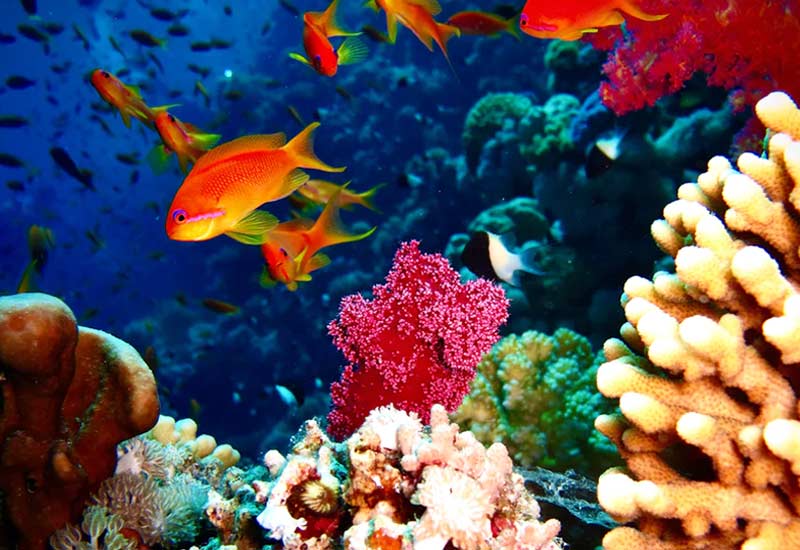
Until the year 2050 all coral reefs, such as the Great Barrier Reef off Australia's northeast coast (Unesco World Heritage Site), could be history.₁₀ Each of us can and must do something to ensure that this state never occurs, because the consequences of coral death for life on earth are fatal. Fortunately, coral systems are capable of regenerating themselves - if we humans let them.
I hope that with this article I could bring you closer to the topics of coral mortality and coral bleaching. Do you have any questions or suggestions? Then I look forward to your comment!
Stay sustainable,

PS.: You want additionally do something against the deforestation of the rainforests? How you can also protect these unique, species-rich regions in everyday life, you will learn in the corresponding article. Have fun!
References:
₁ Spektrum der Wissenschaft Verlagsgesellschaft mbH: Korallensterben, available at https://www.spektrum.de/lexikon/biologie/korallensterben/37068 [11.01.2022].
₂ Hans-Peter Willig: Coral Bleaching, available at https://www.biologie-seite.de/Biologie/Korallenbleiche. [11.01.2022].
₃ Terra X: Threat to Coral Reefs | Dirk Steffens in the Seychelles | Terra X, YouTube, Feb. 17, 2019, web, Jan. 11, 2021 at 07:32 AM, in: https://www.youtube.com/watch?v=mttUiWl0YLM&t=355s.
₄,₅,₆ Deutschlandfunk; Interview with Christian Wild: Scientists on coral mortality "Find ourselves in quite deep coral reef crisis" (as of 21.07.2021), available at https://www.deutschlandfunk.de/wissenschaftler-ueber-korallensterben-befinden-uns-in-ganz-100.html. [11.01.2022].
₇ Scinexx: Quite demanding - The living conditions of corals (as of 26.10.2001), available at https://www.scinexx.de/dossierartikel/ganz-schoen-anspruchsvoll. [11.01.2022].
₈ Patric Herweh: Coral death caused by climate change - CO2 emissions cause acidification of the oceans, available at https://www.klimawandel-global.de/klimawandel/folgen/meer/korallensterben-verursacht-durch-klimawandel-co2-emissionen-sorgen-fur-ubersauerung-der-meere. [11.01.2022].
₉ Gunda Wörlein: Coral bleaching causes & consequences: Did you know? (As of 01.04.2020), available at https://indojunkie.com/korallenbleiche-ursachen. [11.01.2022].
₁₀ Laura Parker; Craig Welch: In 30 years, our coral reefs could be gone (as of Oct. 27, 2017), available at https://www.nationalgeographic.de/umwelt/2017/07/30-jahren-koennten-unsere-korallenriffe-verschwunden-sein. [11.01.2022].

